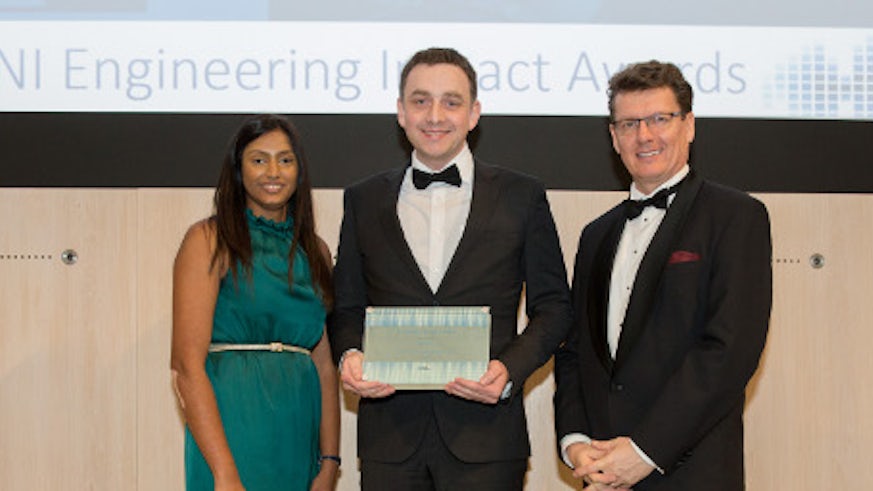Dr Richard Lewis Wins National Instruments Engineering Impact Award
15 February 2017

School of Physics and Astronomy lecturer Dr Richard Lewis has won a National Instruments Engineering Impact Award for innovative postgraduate teaching using the National Instruments LabVIEW system design software.
The Engineering Impact Awards is National Instruments' annual technical application contest that showcases the most innovative projects created using NI hardware and software. Dr Lewis won the 2016 Northern Europe Education award for his case study, “MSc Physics Students Take Ownership of their Learning with LabVIEW”, which was published on ni.com.
As part of the Advanced Experimental Techniques in Physics module taught by Dr Lewis on Cardiff University's MSc Physics programme, students used the LabVIEW platform and its application to hardware interfacing to solve real-world problems through 10 week projects which ran parallel to their lectures, workshops and laboratory sessions.
The case study outlined how MSc Physics students organised their own research group-style meetings which contain action learning sets to help them support each other, and to prioritise and set goals for each week's activities. It was found that, by the end of the module, students who had no prior programming experience could generate well-designed and well-written graphical user interface applications that communicate with actual hardware in order to solve real physics-based problems.
During the Academic Year 2015/16, MSc Physics students worked on projects such as: Scanning Electron Microscope (SEM) Repair and Restoration; A Laser Interferometer Gravitational Wave Observatory (LIGO) Analogue; Upscaling a Confocal Microscope and Replacing a Lost Controller Card: Spectrometer Control.
Once students have acquired this foundation in LabVIEW programming and its applications, they have the option of undertaking the Certified LabVIEW Associate Developer (CLAD) examination, which gives them both an industry-recognised certification and a definite advantage in today’s competitive job market.
Dr Lewis said: “To offer an equivalent course with Python, C++, or a similar language instead of LabVIEW, we would have needed a prerequisite that the student had a high level of programming skill in that particular language. With LabVIEW, we can offer the course with no coding prerequisites whatsoever and still maintain the module's intended learning outcomes at master's level.
With our tightly-integrated module design and dedicated teaching space, students can achieve a high level of proficiency in 10 weeks.”
Dr Lewis received his award at a special evening ceremony and dinner held at RSA (Royal Society for the Encouragement of Arts, Manufactures & Commerce) House, London, on 28 November 2016.
As a result of winning the award, he has been awarded a full reimbursement and expo pass to the global National Instruments Week 2017 conference in May in Austin, Texas where he will be delivering an educational presentation about the innovative features of Cardiff University’s MSc Physics programme, entitled “LabVIEW as a Common Language for Community and Skill Building”.
The winning case study can be found here.